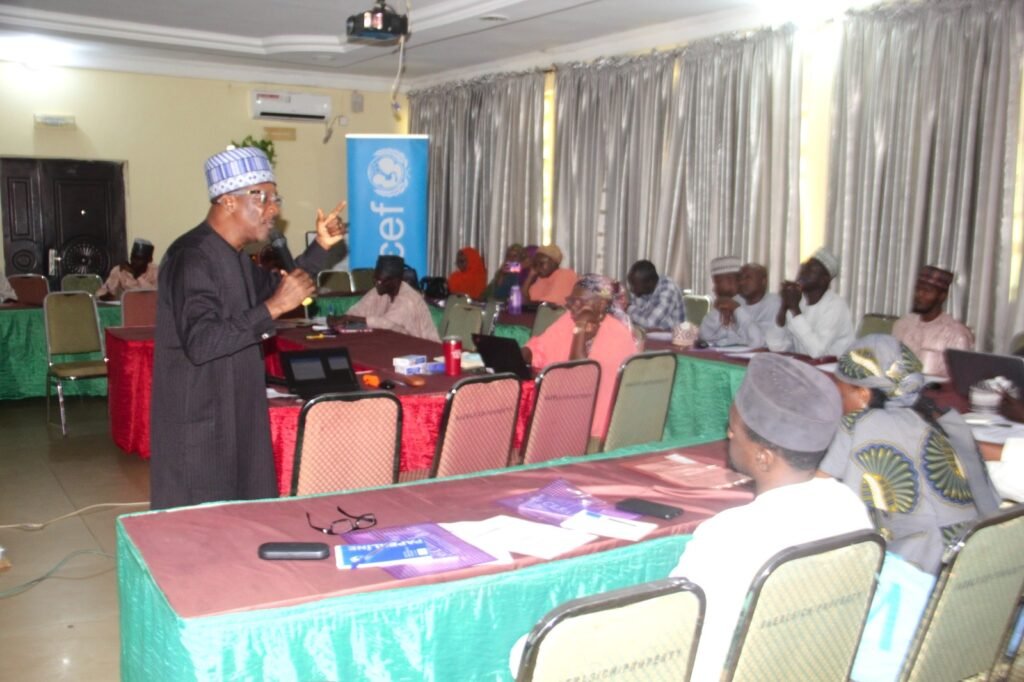From Mika’il Tsoho, Dutse
The United Nations Children’s Fund (UNICEF), in collaboration with broadcast media managers, has called for greater prioritization of child well-being in media programming.
This appeal was made during a two-day advocacy dialogue with news and program managers from radio and television stations in Kano, Jigawa, and Katsina states.
The event, organized by UNICEF’s Kano Field Office, took place at the NAESAL Conference Suite, Faculty of Agriculture, Ahmadu Bello University, Zaria.
UNICEF’s Kano Field Office Nutrition Officer, Abigail Nyam, emphasized the vital role media plays in educating, informing, and influencing policymakers, parents, traditional and religious leaders, and other stakeholders on adopting child-focused policies.
She urged media outlets to set an agenda that creates awareness about the importance of child well-being, particularly during the first 1,000 days of life.
“The first 1,000 days are critical for a child’s physical and cognitive development. Inadequate nutrition during this period can lead to stunting,” Nyam said.
She also stressed the importance of proper nutrition for women and children, early treatment of infections, hygiene practices, child spacing, and breastfeeding for optimal development.
Nyam further highlighted the need for micronutrient supplementation, Vitamin A for children aged 6-24 months, and the prevention of infectious diseases to improve child development outcomes.
Speaking on the objectives of the dialogue, Samuel Kaalu, UNICEF’s Communication Specialist for the Kano Field Office, explained that the event aimed to raise awareness among media managers about child rights priorities and to solicit their support in amplifying issues related to children.
Kaalu also called for a focus on reducing open defecation, addressing the out-of-school children crisis, improving routine immunization, and tackling multidimensional poverty in the region.
Kaalu revealed that about 48 million people in Nigeria practice open defecation, with only 11% of schools and 6% of health facilities having basic water, sanitation, and hygiene (WASH) services.
He noted that despite Jigawa State achieving Open Defecation Free (ODF) status, only 134 out of Nigeria’s 774 local governments have reached this milestone.
Michael Banda, Senior Education Manager for UNICEF’s Kano Field Office, addressed the growing out-of-school children crisis, noting that 10.2 million Nigerian children are out of school, with the North-West region, including Kano, contributing significantly to the figure.
He stressed that Nigeria allocates only 1.2% of its GDP to education, far below the 4-6% recommended by the Sustainable Development Goals (SDGs).
Banda also highlighted a nationwide shortage of 37,800 classrooms and 278,000 teachers, further compounding the country’s education crisis.
He called for deliberate efforts by all stakeholders to address these challenges and improve Nigeria’s educational system.
Banda pointed out that 70% of junior secondary school students in Nigeria struggle with basic literacy and numeracy skills, according to the National Bureau of Statistics (NBS).

